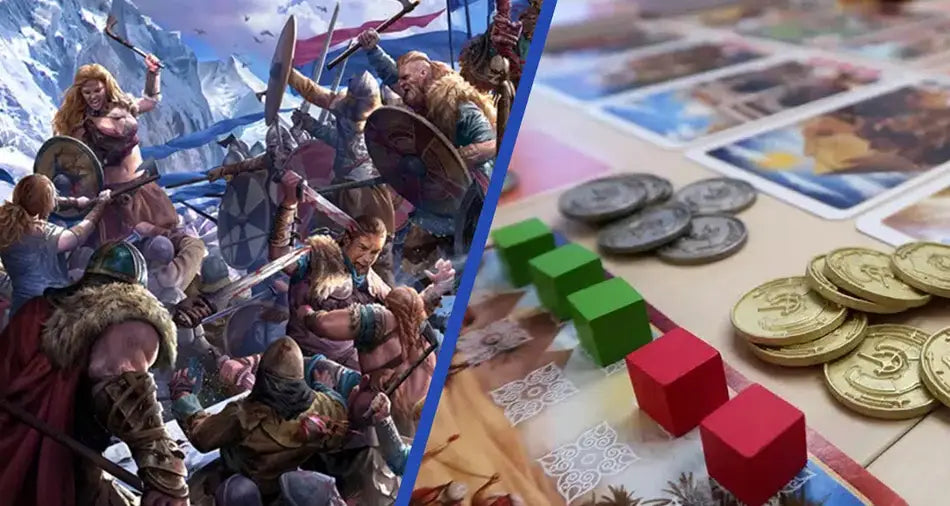That provocative title isn’t true - until I explain what I mean.
Sure board games have themes, including Senet and Peter Coddles and Star Trek Ascension. Even many historical abstracts have themes, like chess and daldøs. But many abstracts do not have themes, like checkers and Seega and ts do not have themes, like checkers and Salta.
But in more modern tabletop games, a theme is generally the first level of evaluation. For example, modern games are usually ABOUT something (like Kim-Joy’s Magic Bakery or Potion Explosion or Trekking the National Parks). Considering the name, the artwork, and the sales pitch on the box, one can get a pretty good impression of what the game is about, how it works, and whether you want to try it.
Personally, I’m not too crazy about combat, spell-casting, hack-and-slash games. I rarely even pick up the box at the FLGS if it’s all monsters and weaponry.* I’m not interested in “acting” games or goofy make-a fool-of-yourself party games. There are a few hidden-role games I like, but those are not really at the top of my list. I’m not into athletic themes (except racing maybe) or gigantic space-conquest epics that take days to play, or games with lots of card text, iconography, card combos and arcane terminology to learn.
I like trading games, worker placement, engine building, and puzzle-solving games. I like cooperative adventures, not-too-heavy deck-builders, resource management stuff. Some “point salad” games are fine, and hidden information in moderation. Again – look at the box, read the notes, and I can generally tell if it’s my cuppatea.
But, I’ve been fooled! I like Gloomhaven! There have been a few war-theme games like Shogun or Cyclades that have a resource-management aspect to them that I like. The little “Age of War” dice game has nothing at all to do with warfare. If I hadn’t been introduced to it by a friend, I would not have picked up a copy.
When I start playing a new-to-me game, the thematic elements and mechanics (if it’s well designed) will help me learn the game. But after I learn the game and get a strategic overview, the theme doesn’t matter. I don’t feel like I’m directing giant corporations against each other or moving cowboys around a frontier landscape. I’m just playing the game. Cute dragons or cartoon gangsters are not the game (to me) - the game is the game.
So through the experience of the “book and its cover” cliché, I’ve learned not to jump to a conclusion based on theme alone. I let myself try stuff I normally wouldn’t to see what the game is about. Theme doesn’t matter.
*NOTE: But some of the artwork is wonderful.

